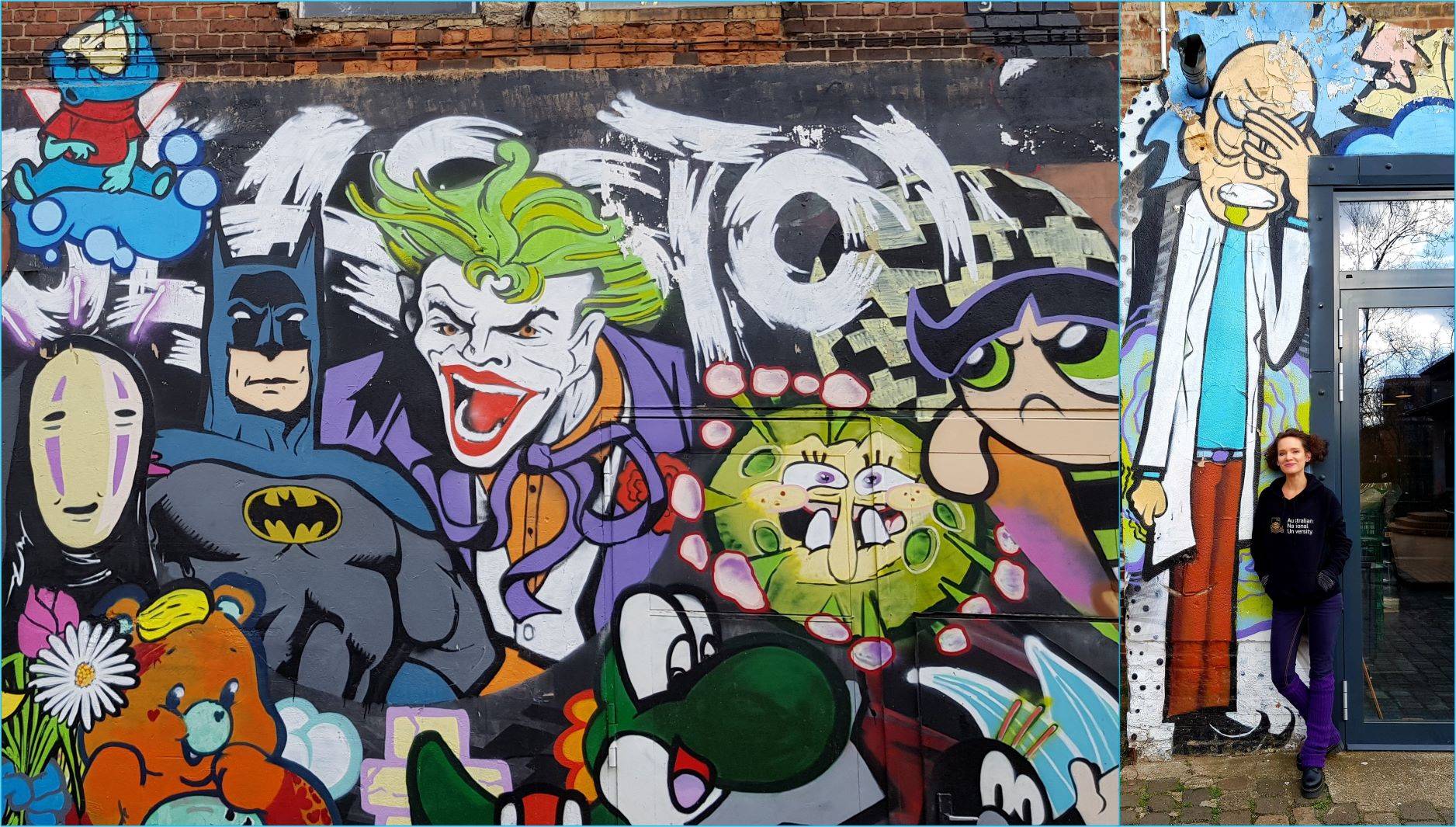
How street art can communicate science and research
Street art is more than just a pretty (sur)face.
Dr Anna-Sophie Jürgens from the Australian National Centre for the Public Awareness of Science at ANU, believes street art is an engaging medium for communicating science and research. That’s why she’s hosting two public events on how art in public spaces can stimulate interest in research, for example around environmental science.
“In Canberra there are fantastic, creative minds who reflect on the environment and the role of art in the city and urban spaces,” Dr Jürgens says. New research highlights that street art, viewed as a science communication tactic, can encourage agency in pro-environmentalism and help to develop our relationship with sustainability.
Street art addresses a huge and extremely diverse audience: everyone in a city. It is created for public visibility.
“Street art has the benefits of a context built into its existence and therefore reception. A well-sited work is amplified by the place,” Canberra artist Byrd said in a conversation with Dr Jürgens.
“Art is about the communication of ideas from artist to audience; street art, more than any other form of art, reduces the gap between the two, bringing artworks to the public, whether they want it or not,” Canberra artist Houl explained in a recent article.

But, how much science and research can someone interpret or glean from street art?
Street art can address, reflect and inspire our emotions, assumptions and hopes from and about science and research, often better than words can. Through signs, symbols, colour and other strategies, such as wit and humour, we understand different layers of meaning, says Dr Jürgens.
Public art and science have been brought together at ANU before, with science communicator and CPAS alumna Lee Constable having organised a series of ‘Science meets Street Art’ co-labs in Canberra and beyond.
Meet Lee Constable, ANU staff and students exploring street art, and guest speakers interested in the influences and interconnections between science and street art, research and pop culture, during the upcoming Uncharted Territory at two public symposia:
‘Street Art, Pop Culture and Science Communication’ symposium (8 July)
‘Street Art, Science & Engagement’ symposium (15 July)
You can learn more about street art and science communication online in the online journals JCOM (in a brand-new article written by CPAS student Blake Thompson with CPAS staff and 2023 Visiting Fellow BOHIE) and w/k – Between Science and Art and on the Popsicule website.
Cover image: 'Inspire Growth' by artist BOHIE. Photo: Nic Vevers/ANU.



